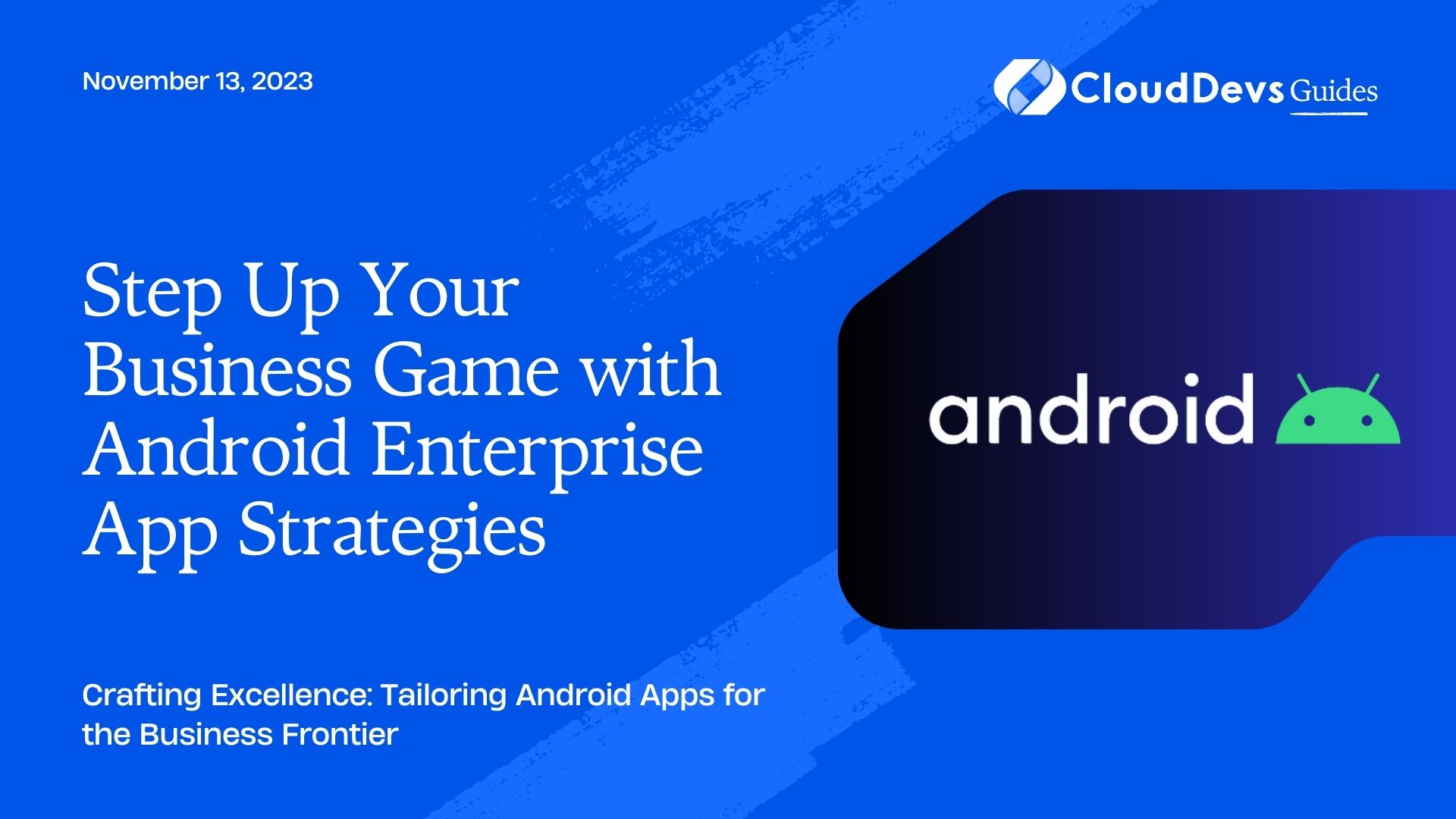Step Up Your Business Game with Android Enterprise App Strategies
The Android platform powers billions of mobile devices across the globe. While it’s popularly associated with consumer apps, there’s a robust and growing ecosystem around Android enterprise development. As businesses increasingly adopt digital solutions, Android developers are tasked with creating apps that address the specific needs of enterprises, ensuring security, scalability, and productivity.
Table of Contents
In this post, we’ll delve into Android enterprise app development, highlighting key considerations and providing examples to inspire your next business-focused application.
1. Understanding Enterprise Apps
Enterprise apps differ from consumer apps in various ways:
– Purpose: While consumer apps often aim for broad appeal, enterprise apps serve specific business needs.
– User Base: Enterprise apps cater to a particular group of users within an organization, often with specific roles and responsibilities.
– Deployment: Rather than being available on public app stores, enterprise apps are usually distributed internally within a company.
2. Key Considerations in Enterprise App Development
2.1 Security
Enterprise apps deal with confidential data that must be protected. Implement features like:
– Two-factor authentication
– Encryption (in-transit and at-rest)
– Secure coding practices to prevent vulnerabilities like SQL injection
For example, a banking enterprise app would require advanced encryption techniques and multi-layered security protocols to ensure that customers’ financial details are kept confidential.
2.2 Scalability
As businesses grow, apps should be able to handle increased loads without compromising performance. Cloud-based solutions, efficient database management, and modular codebases are vital.
Consider a CRM application: As a company’s client base grows, the app should effortlessly manage the increased amount of data without slowing down.
2.3 Integration
Enterprise apps often need to communicate with other systems. Developers should focus on:
– Building APIs for seamless integration
– Adhering to standards like REST or SOAP for web services
A supply chain management app, for instance, might integrate with inventory management, e-commerce platforms, and shipping partners.
2.4 Usability
Enterprise apps must be user-friendly to ensure efficiency and reduce training costs.
For example, an HR management app that’s intuitive and easy to navigate can dramatically reduce the time HR teams spend onboarding new employees.
3. Examples of Android Enterprise Apps
3.1 Field Service Apps
These apps are designed for professionals working on-site, like technicians or service engineers. Features can include:
– Real-time reporting
– Job scheduling and notifications
– GPS functionality
Example: An HVAC company’s app where technicians can view daily schedules, access client histories, and report completed tasks in real-time.
3.2 Inventory and Warehouse Management Apps
Designed to streamline inventory processes, these apps offer features like:
– Barcode scanning
– Real-time inventory updates
– Order processing
Example: A retail chain’s app allowing warehouse staff to scan products upon arrival, track their location in the warehouse, and update quantities as items are shipped out.
3.3 Sales and CRM Apps
These apps support sales teams with:
– Lead and customer management
– Sales analytics and reporting
– Integration with other sales tools
Example: An app for a pharmaceutical sales rep, where they can log doctor visits, order samples, and access drug information on-the-go.
3.4 Training and eLearning Apps
Companies can offer on-demand training through:
– Interactive content
– Quizzes and assessments
– Progress tracking
Example: An app for a global corporation where employees can access training modules relevant to their roles, complete assignments, and earn certifications.
4. Tips for Success
– User Feedback: Constantly solicit feedback from the app’s primary users. Their insights are invaluable for improvements.
– Stay Updated: With Android OS updates, ensure your app remains compatible. Regular maintenance is a must.
– Future-Proofing: Adopt emerging technologies (like AI or IoT) that might offer a competitive edge in your domain.
Conclusion
Building enterprise apps for Android requires a different mindset than consumer apps. While the core principles of app development remain the same, the focus on security, scalability, and usability become paramount. By understanding the specific needs of businesses and their users, developers can create powerful tools that drive productivity and innovation in the enterprise world.
Table of Contents






